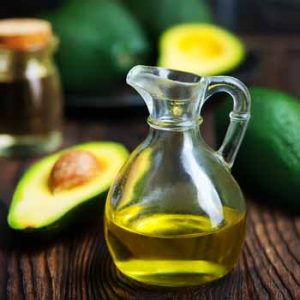
More evidence that low-calorie sweeteners are bad for your health
Studies show that artificial sweeteners can raise the risk of hypertension, metabolic syndrome, type 2 diabetes and heart disease, including stroke.

Natural Health News — Recent research confirms that many of us may not be getting enough vitamin E in our daily diets.
The analysis of blood vitamin E levels in the US points out how difficult it can be to obtain everything we need exclusively from our food alone. This is important because previous research has shown that maintaining adequate intake of vitamin E may help maintain reproductive, brain, and liver function.
In Europe, vitamin E – a powerful antioxidant – carries an approved European Food Safety Authority (EFSA) health claim for ‘contributing to the protection of cells from oxidative stress’.
» Previous studies have shown that adequate vitamin E is necessary to maintain healthy reproductive, brain and liver function.
» However a large new study in the US has found worryingly low levels of vitamin E in all age groups. Blood levels of vitamin E were especially low in those who only relied on diet to meet their requirements
» The study shows that we can’t always get what we need from our diets, and previous evidence suggests that those who adopts a high fat and sugar and low wholefoods diet such as the Western Pattern Diet may be particularly vulnerable to vitamin E deficiency.
All age groups at risk
For this study, the investigators used data from Data from the Centers for Disease Control and Prevention (CDC) and National Health and Nutrition Examination Survey (NHANES 2003-2006), the most up to date survey that included data on alpha-tocopherol (vitamin E) blood levels. Adequate blood vitamin E levels were defined as being 30 micromoles of alpha-tocopherol per litre (μmol/L).
Based on this, say the researchers writing in the journal PLOS One, less than 1% of the population was classified as clinically deficient. But more worrying was the number of people suffering from sub-clinical deficiencies- a figure that persisted no matter how the scientists looked at the data:
Food is not enough
Most of us have heard at one time or another that we can obtain all the nutrients we need by eating a healthy and varied diet. However as our diets change, and particularly when we adopt Western Pattern styles of eating, it is clear that getting adequate levels of vitamin E from food sources alone can be difficult for most people.
In addition, for some people it may not just be the vitamin E, or lack of it, in their food that is the problem. Some health problems like high cholesterol can prevent our bodies absorbing vitamin E efficiently.
Adequate dietary intake of vitamin E has been reported to be important for human health and healthy aging. The recommended minimum daily intake 15mg (22 IU) per day for adults.
It should be noted, however, that most nutritionists recommend a much higher daily intake of around 1,000 mg per day (1,500 IU) – an amount that, studies show, most people can take safely. If in doubt always seek professional advice on what’s right for you.
Vegetable oils, nuts, and seeds, cereal grains such as wheat germ, oats and barley, green leafy vegetables, avocados, sweet potatoes and pumpkins are significant dietary sources of vitamin E. Rice bran oil, coconut oil and palm kernel oil all contain useful forms of vitamin E as well.
While it is important to strive for a healthy diet, using a good multivitamin or vitamin E supplement can be a good way to complement our dietary habits in order to get the vitamin E we need.

Please subscribe me to your newsletter mailing list. I have read the
privacy statement